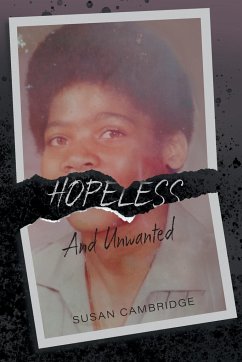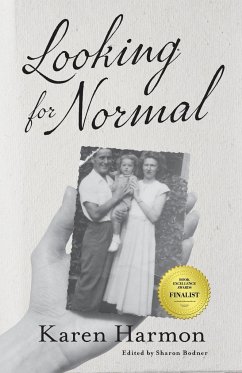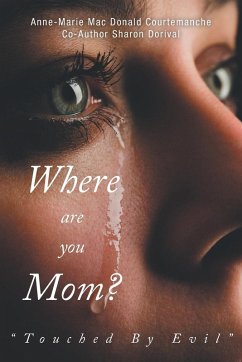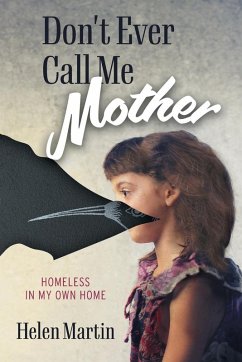Nicht lieferbar

Hopeless And Unwanted
Versandkostenfrei!
Nicht lieferbar
This honest and raw memoir is not easy to read, but it should be deemed essential reading for anyone who works in the field of child welfare. Susan Cambridge's childhood was horrendous. Unwanted and neglected, she was emotionally, verbally, and physically abused by her mother and brother and left to fend for herself from the age of nine. She slept in a locker for seven years without anyone knowing, went days without eating proper food, and bounced from foster home to foster home. Fortified by her faith in God, and against all odds, Susan pursued her education and a career in child social servi...
This honest and raw memoir is not easy to read, but it should be deemed essential reading for anyone who works in the field of child welfare. Susan Cambridge's childhood was horrendous. Unwanted and neglected, she was emotionally, verbally, and physically abused by her mother and brother and left to fend for herself from the age of nine. She slept in a locker for seven years without anyone knowing, went days without eating proper food, and bounced from foster home to foster home. Fortified by her faith in God, and against all odds, Susan pursued her education and a career in child social services. After working in the field for almost three decades, Susan made it her mission to ensure that all social service professionals and foster parents fully understand and appreciate the way in which childhood trauma endures and impacts its victims for the rest of their lives. That mission is this book: Hopeless and Unwanted. Intended as an eye-opening dive into the experiences and lasting impacts of childhood trauma and their intersection with the child welfare system, Susan invites survivors of childhood trauma and social workers alike to leave damaging cycles behind and find lasting healing.













